Quantum network builders Stephanie Wehner, Mariagrazia Iuliano, Carlo Delle Donne and Bart van der Vecht (ltr).
© Studio Oostrum voor QuTech
quatum devices
The QNodeOS operating system transforms quantum networks from a theoretical concept into a usable technology. “We want to make quantum network technology accessible to everyone,” says Stephanie Wehner, professor of quantum information in the Faculty of Applied Sciences, director of the Quantum Internet Alliance, and lead author of the article ‘An operating system for executing applications on quantum network nodes’ published in Nature in March. “We connect quantum computers and other quantum devices over a network and have now created an operating system that allows you to run a program on such a network.” The system is called QNodeOS and is the link between programming languages like Python and the various qubits in quantum devices. To demonstrate the system, the researchers established a connection between quantum processors in Innsbruck and Delft.
Tree full of books
IDE student Romeo Veldhuis designed the ‘Biebboom’, a mini library inspired by a tree. “I imagined being able to pick books like ‘fruit’ from a tree.” His winning design from a COVID-era competition evolved from a simple sketch into a durable metal structure that could withstand hurricane-force winds. “The branches are made of 5-millimetre-thick metal for safety reasons because the structure must be sturdy and vandalismproof.” The process involved some challenges such as watertight doors, which he tested in the shower at home. It took three years but his robust and aesthetic work of art has become a reality on the TU Delft campus.
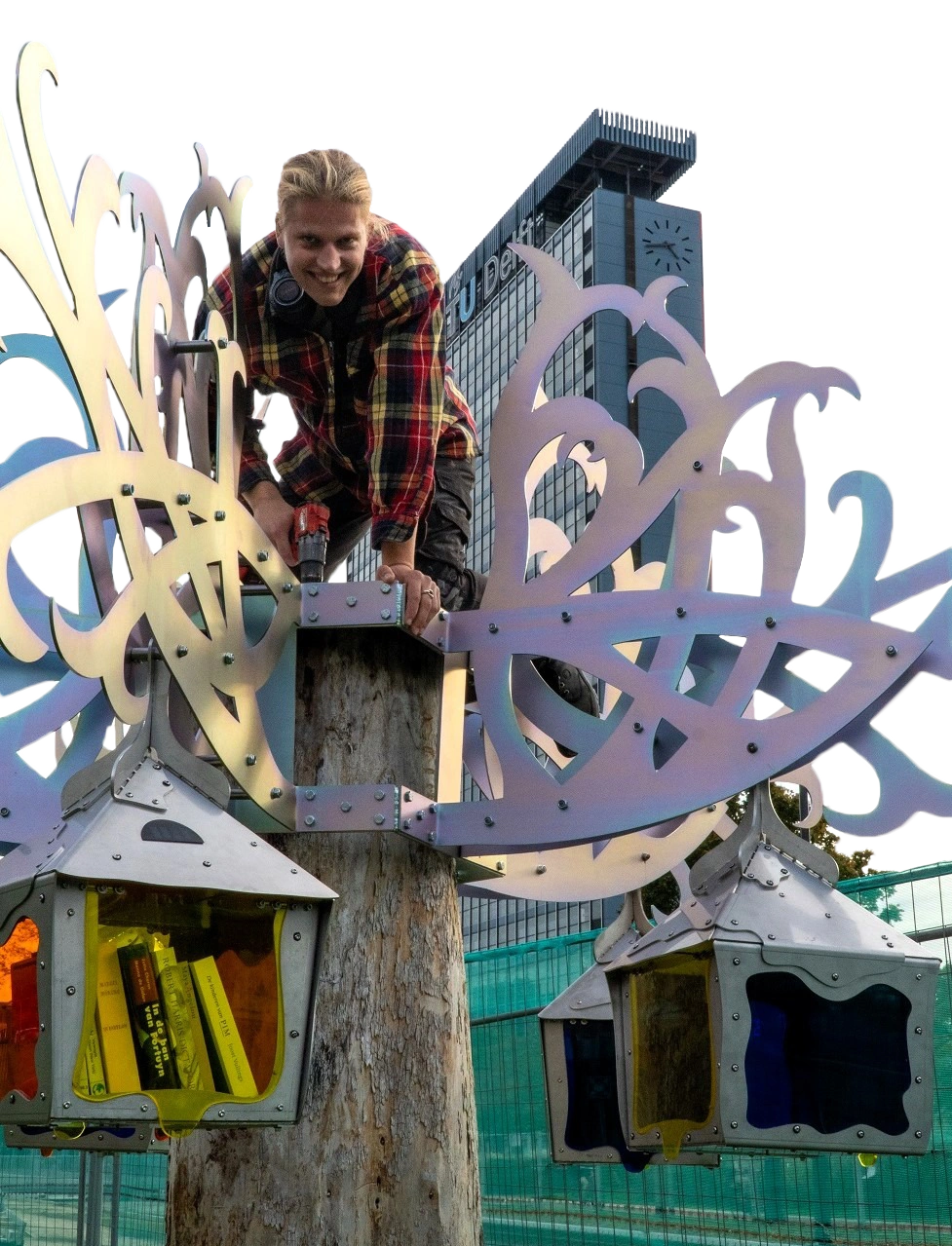
Romeo Veldhuis at his biebboom on campus.
© Carlo Faulquier
Fake scientific conference
Fake conferences, also known as predatory conferences, are a growing scourge in science and academia. Conference organiser BITcongress held one such ‘copycat conference’ in Budapest, where researchers paid thousands of euros for an event that turned out to be chaotic and incoherent in content. Everything was lumped together – from neuroscience to dentistry. Scientists were misled by flattering e-mail invitations and often only discovered afterwards that the conference added nothing of value to their field. Rogue companies use these conferences to try to squeeze money from the pockets of scientists.

Four ERC grants
Four Delft researchers received a €2 million ERC Consolidator Grant. Prof Oded Cats (Civil Engineering and Geosciences) is developing more sustainable networks for long-distance travel. Prof Tatiana Filatova (Technology, Policy and Management) is researching the socio-economic risks of climate disasters. Dr Liedewij Laan (Applied Sciences / AS) is studying how cells remain resilient without essential proteins, which has potential applications for cancer therapy. Prof Toeno van der Sar (AS) is developing new technology using magnetic waves for wireless communication. The ERC distributed €678 million to 328 researchers this year. These consolidator grants enable the winners to form their own research teams.
Self-driving transport
According to TU professor Dariu Gavrila (Mechanical Engineering), self-driving vehicles have huge potential: fewer traffic deaths, more affordable transport and increased convenience for travellers. But obstacles such as tunnel radar failures, complex urban infrastructure and legal dilemmas (liability in case of accidents or injury) require smart solutions. Innovations from Delft, such as emergency systems when sensors fail and technology to combat motion sickness, are proof that Europe is making progress. Researchers at TU Delft’s Robotics Lab have made crucial strides towards the introduction of selfdriving transport.
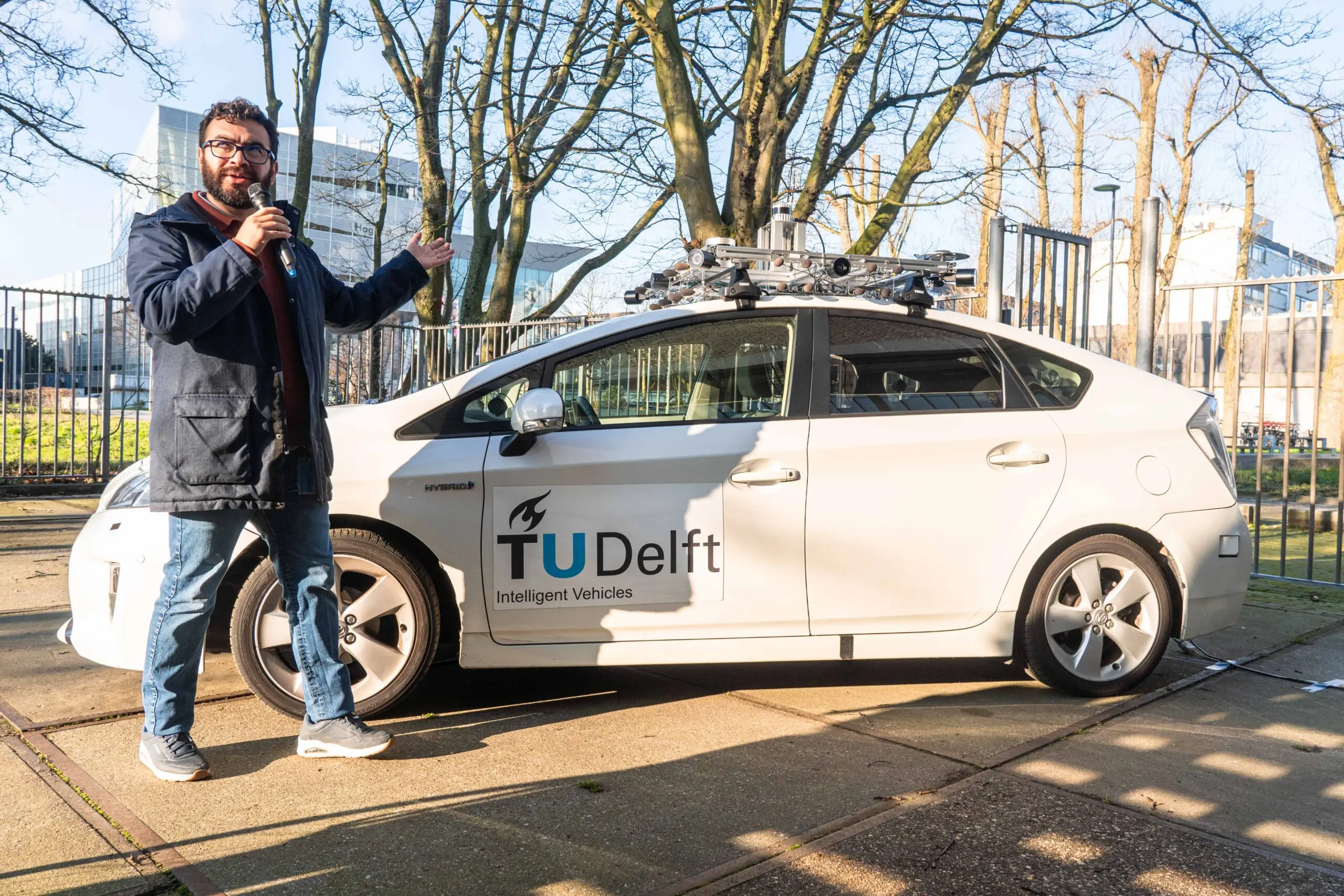
Mario Garzon from Mechanical Engineering tells about TU Delft’s test car for autonomous driving.
© Thijs van Reeuwijk
© Thijs van Reeuwijk
Technology, Policy and Management (TPM) professors stand together at the start of the 2024/2025 academic year.
For the first time, the Netherlands has more than 1,000 female professors, which accounts for 28.7% of the total. Despite a slight increase, TU Delft remains in last place with 18.9%, according to the annual monitor of the Dutch Network of Women Professors (Landelijk Netwerk Vrouwelijke Hoogleraren). At the current rate, it could take another 40 years for Delft to achieve gender equality. Nationally, universities like Tilburg and the Open University are frontrunners but the LNVH warns that planned cutbacks could further delay gender equality and diversity. “We still have a long way to go,” said UNL president Caspar van de Berg.
Better lighting
TU Delft alumnus Luci Santema (27) is making waves with her Ziemi bicycle light, which increases cyclist visibility by illuminating their legs. The idea originated during her Industrial Design Engineering studies, where she was concerned about the safety of bicycle couriers who often ride extremely fast in the dark. More than 40,000 lights have since been sold. Santema runs the company Ziemi together with business expert Douwe Korver, and expects to quadruple sales next year. She is also working on lighting for runners and road racing cyclists, further building on her ‘Biomotion lighting’.
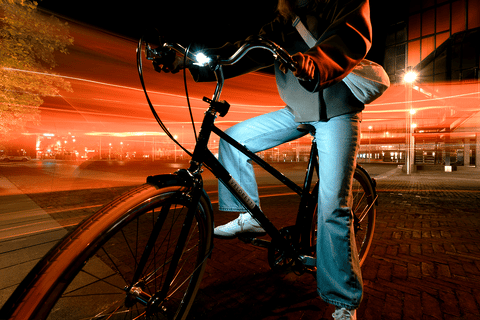
The lighting focuses on the legs.
© Ziemi
© TU Delft
Echo
Award
Pravesha Ramsundersingh, a master’s student in computer science and engineering and former student council member, won the Bèta Techniek Award at the Echo Awards in Amsterdam. She received the award for organising a social safety conference focusing on awareness and inclusion in education. The jury praised her commitment to structural change, such as a code of conduct and mandatory diversity training for teaching assistants. The Echo Awards reward students from non-western backgrounds who turn their experiences into positive contributions to society.
Board change
TU Delft’s Executive Board will be made up of entirely new members. Rector Magnificus and President Tim van der Hagen will step down in January 2026, while vice president of operations Marien van der Meer will leave in August 2025. The new board president will no longer have a dual role with the Rectorate, as has been the case since 2018. While social safety is a major point of concern, the university stresses that the change of board is a strategic choice and not a direct result of the critical Inspectorate report. The new governance model should provide greater focus on both internal and external challenges within the university.
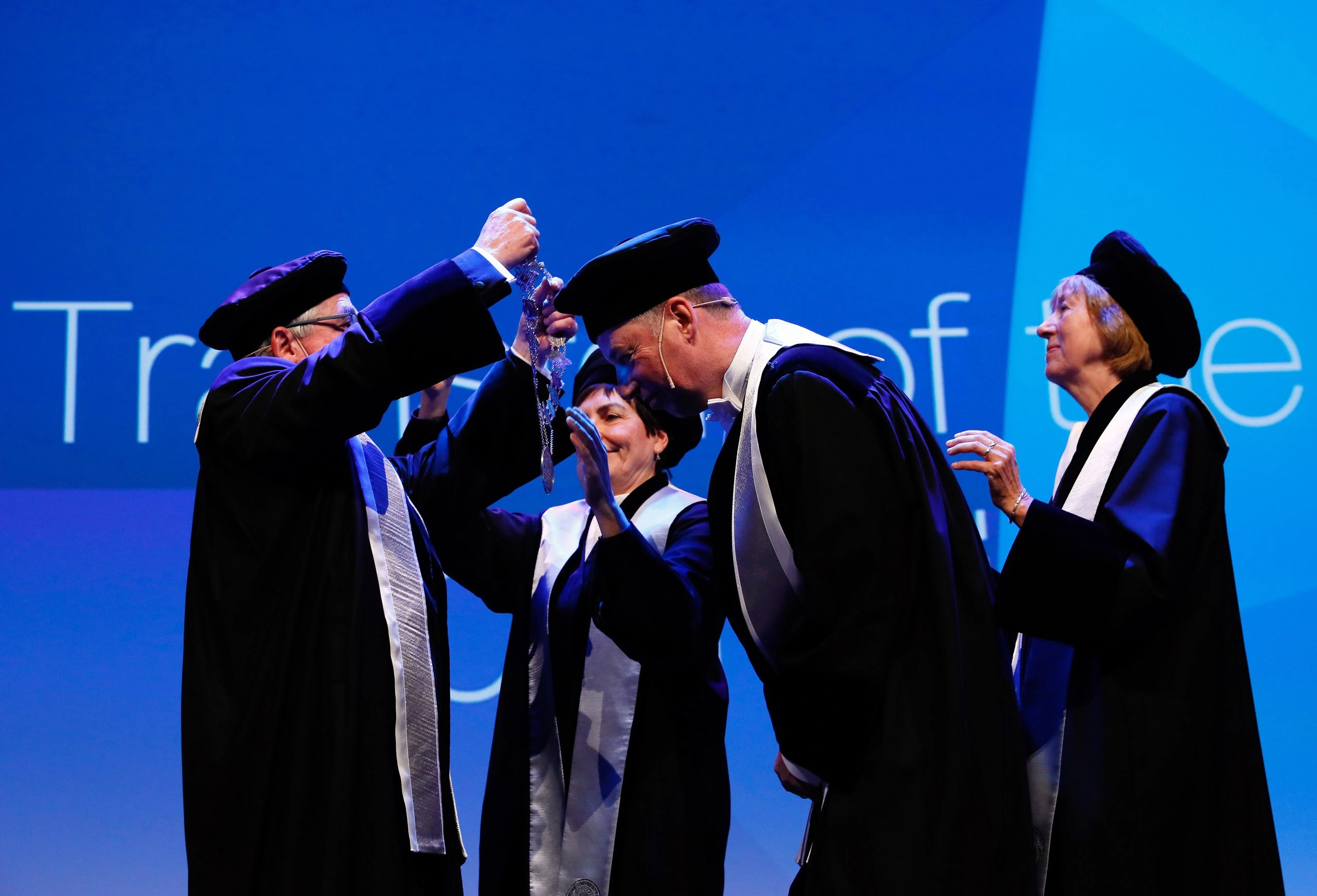
Tim van der Hagen received the chain of office at the 2018 Dies (Foundation Day) from his predecessor Karel Luyben
© Roy Borghouts
Solar panels provide an increasing share of electricity generation, but what should be done with them when they reach the end of their lifespan? We’re at the start of a huge waste stream that will swell to 60 million tonnes worldwide by 2050 but the Faculties of Civil Engineering and Geosciences (CEG) and Electrical Engineering, Mathematics and Computer Science( EEMCS) are working hard on solutions. “Without recycling, a huge amount of valuable materials will be lost,” says Dr Malte Vogt (EEMCS). Yet there is a scarcity of processing facilities, resulting in 90% of panels ending up in landfills. Efficiently recovering valuable raw materials involves a complex mix of technologies. The European Peacoc programme is developing techniques to upcycle solar panels and recover almost all materials.
Researcher pens a thriller
Instrument physicist Chris Duif’s day job involves working with neutrons at the Reactor Institute Delft (RID). But during his regular commute on the train, he wrote a thriller about the Brussels lab where he used to work: Scheuren in de toekomst (Cracks in the Future).
Chris Duif, Scheuren in de toekomst, Uitgeverij Helmholtz & Verbier, 2025. Nederlands | Paperback | 9789083501666 | 656 pagina’s |
€ 25
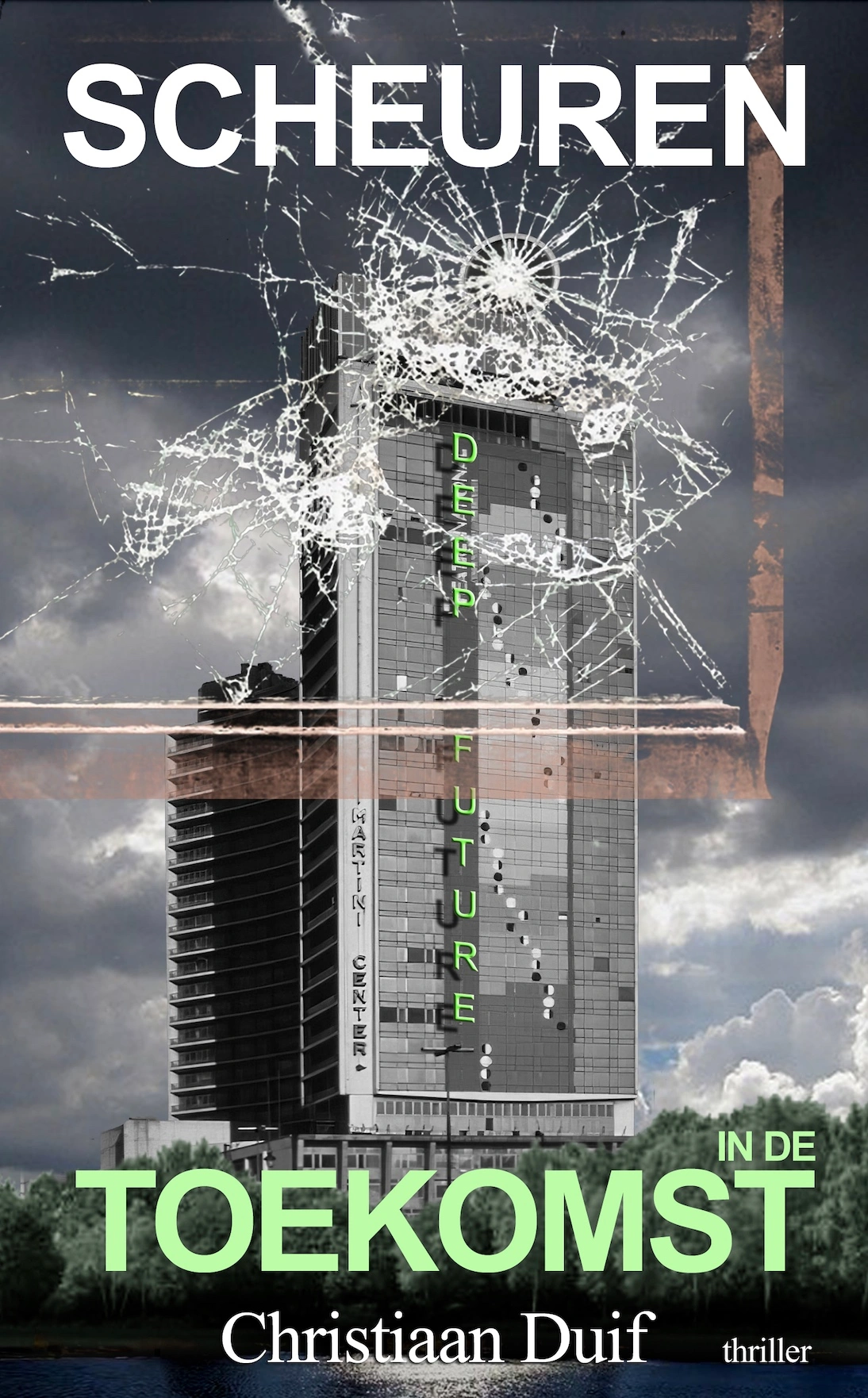
Laga: Water & Beer
The Water & Bier (Water and Beer) documentary provides an exclusive look inside the Delft student rowing club Laga. Filmmaker Lisa Boerstra captured the mix of elite sport and tradition, from Harry Potter-style dinners to gruelling training sessions. “Your whole body screams ‘stop’ but we never stop!”, a coach shouts during a selection training session. In a touching moment, rower Willemijn Mulder bursts into tears at her Olympic selection: she does not want to leave her rowing comrades. “It’s one of those moments when you suddenly understand just what Laga means to someone,” Boerstra says. Water & Bier can be watched on NPO Start:
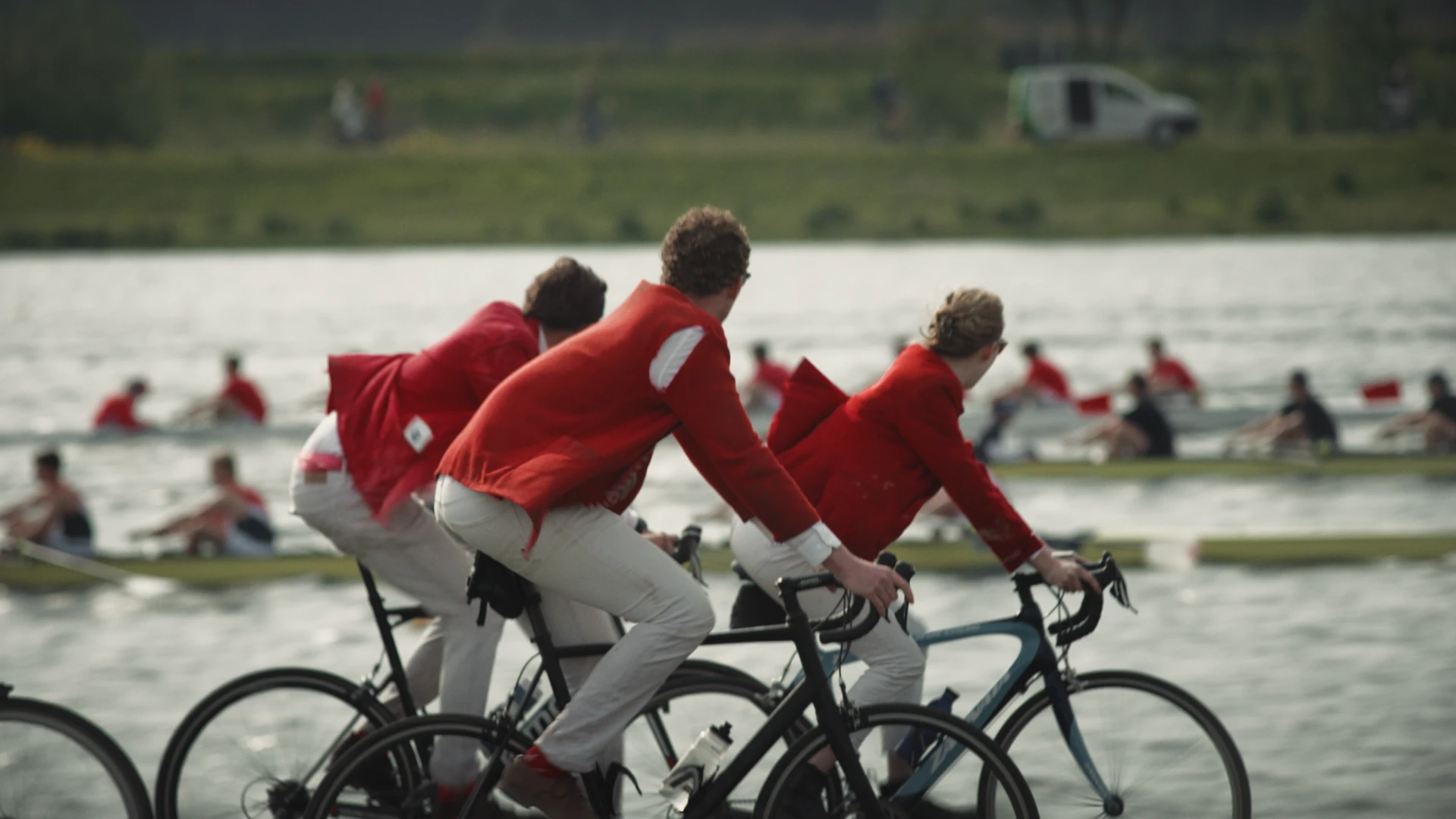
Image from Lisa Boerstra’s Water & Bier documentary on Laga.
Housing concerns
A report based on a survey of 571 students shows that Delft students are worried about their housing situation. Over a third of respondents reported overdue maintenance, with almost half of them giving their landlord an inadequate rating for fixing the problems. The future of student housing is also uncertain; the Aan ‘t Verlaat complex will soon be demolished and a quarter of tenants worry that the landlord will sell their property. The researchers call on the municipality and housing association Duwo to speed up maintenance and stimulate the construction of new student housing.
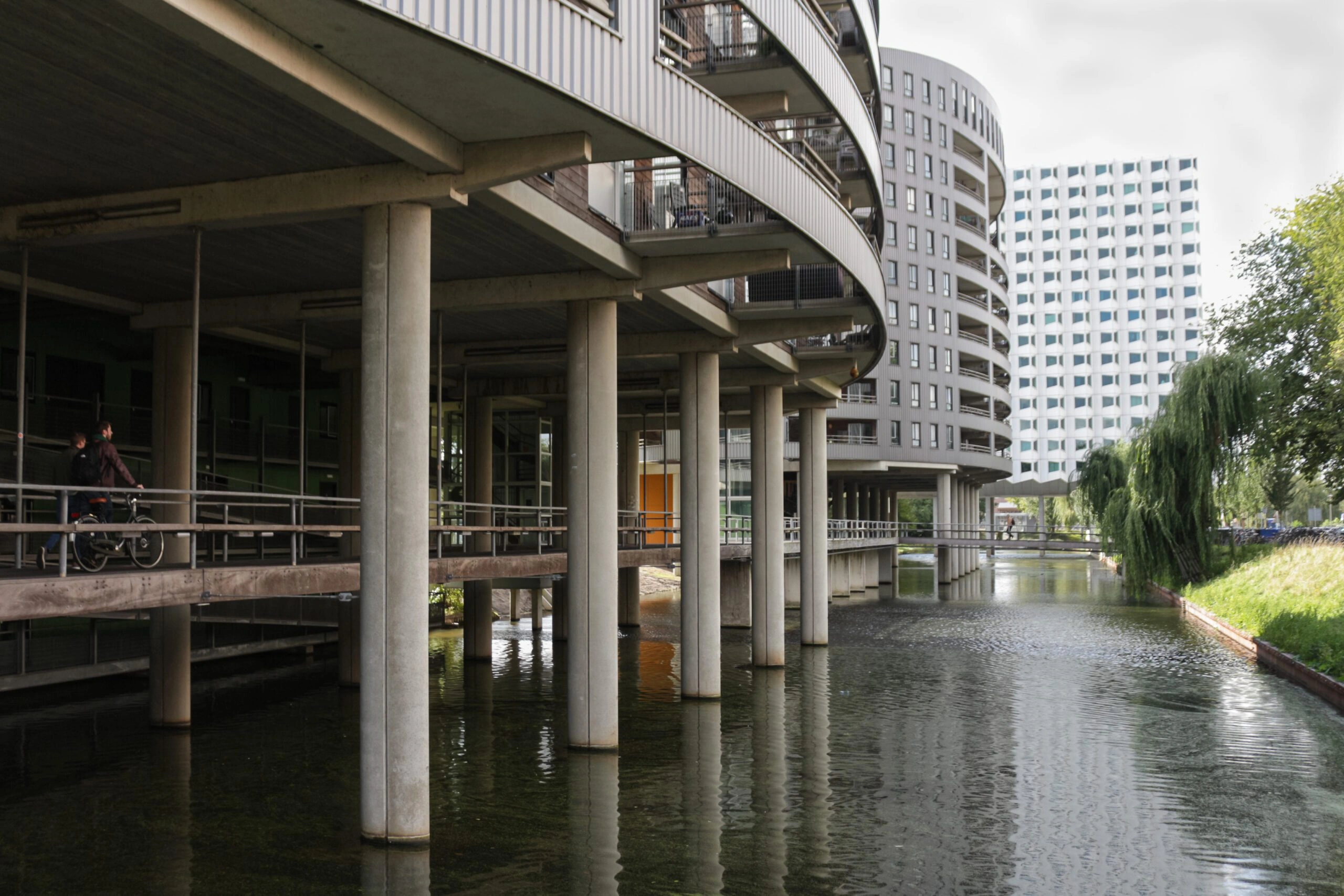
Student houses on campus.
© Justyna Botor
Drastic cutbacks
TU Delft faces drastic cutbacks: up to €79 million a year from 2028. The Executive Board is not ruling out compulsory redundancies as part of this. Much depends on the plans all faculties and service departments must make in the coming months to cut 10%. TU Delft’s financial position is under increasing pressure. This is down to several factors, such as structurally rising staff costs due to new regulations, increasing material costs due to inflation, rising energy costs due to geopolitical developments, and higher property maintenance costs. The Executive Board wants to be able to continue investing in strategic projects relating to digitalisation, expansion and real estate. At the same time, new government policies threaten a further contraction of state revenues.
© TU Delft
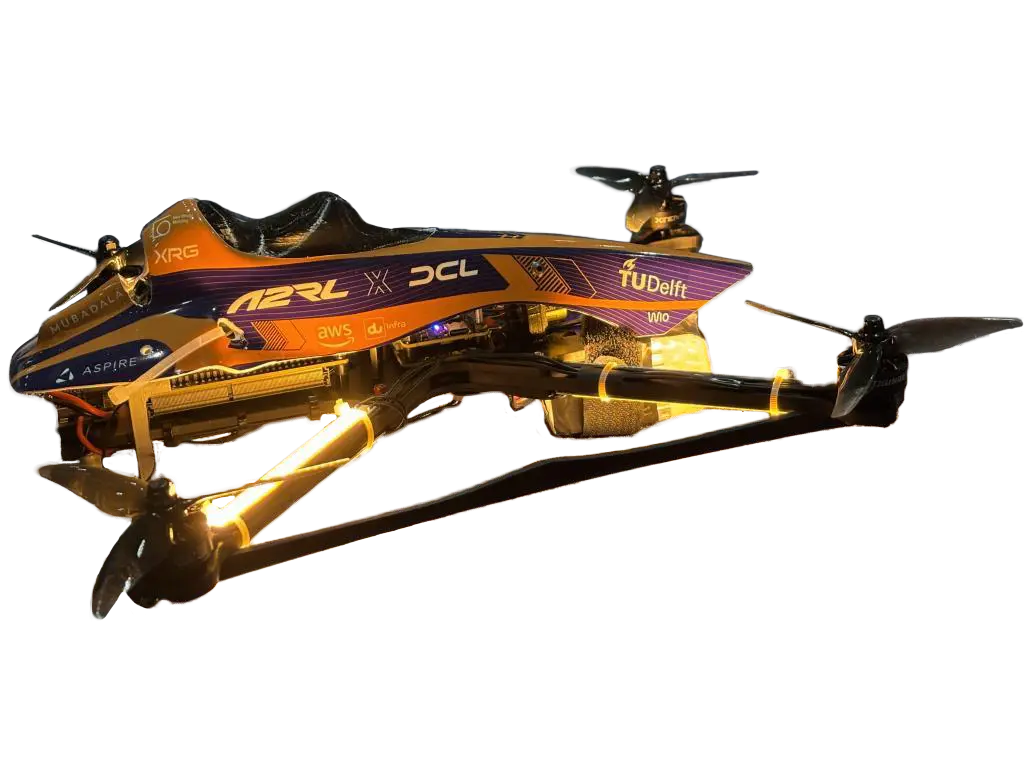
Drone
defeats human
In a first, a fully autonomous drone has defeated human opponents in an official drone race in Abu Dhabi. A team of students and researchers from the MAVLab not only left 13 other AI teams in the dust, but also professional human pilots. The Delft drone flew based on artificial intelligence with only one forward-looking camera as input, which is similar to the vision of human FPV (first-person view) pilots. The championship aimed to explore the limits of ‘physical AI’ by making drones perform under harsh conditions with minimal hardware.
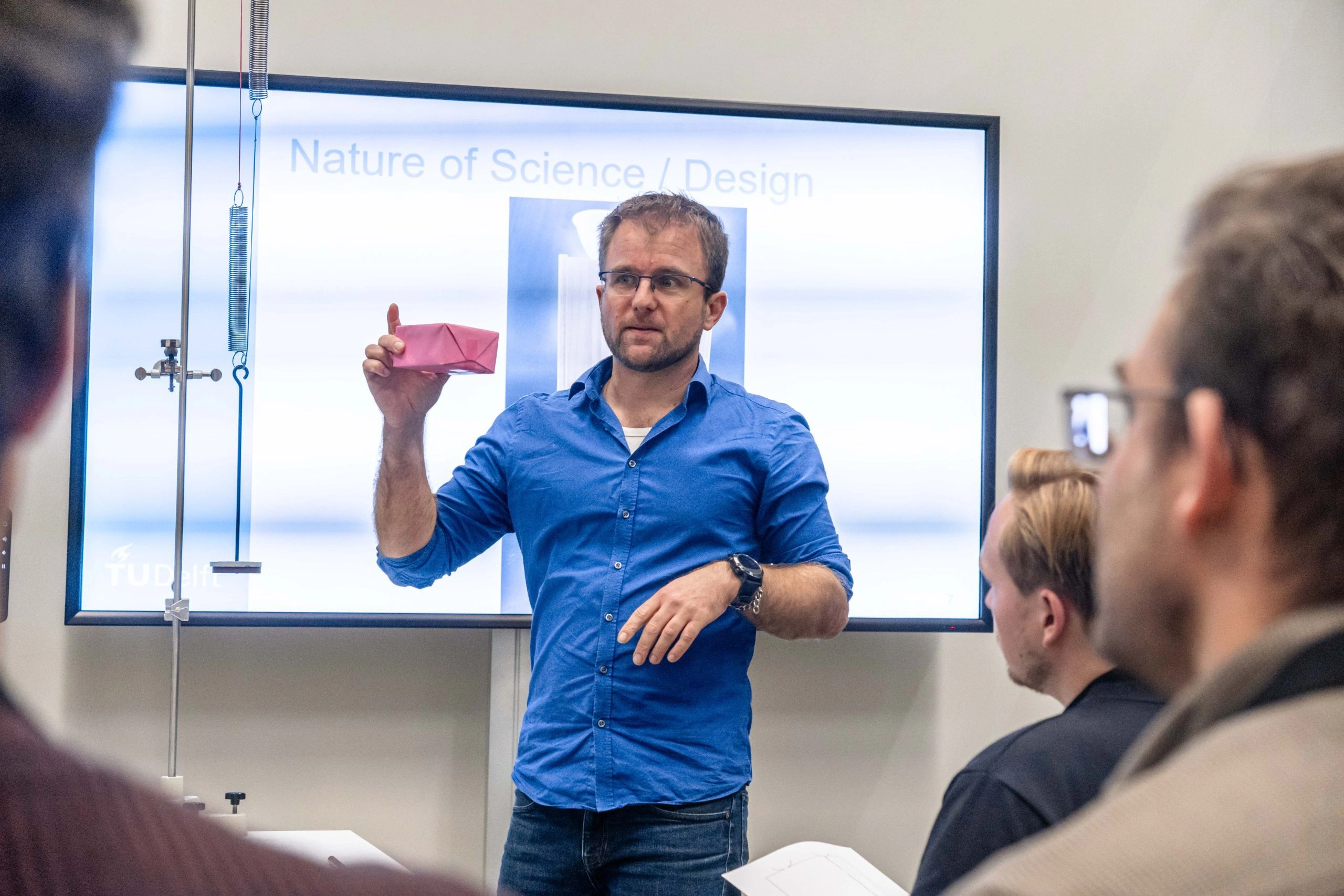
Freek Pols does a demonstration experiment at the TU Delft Education Day
© Thijs van Reeuwijk
